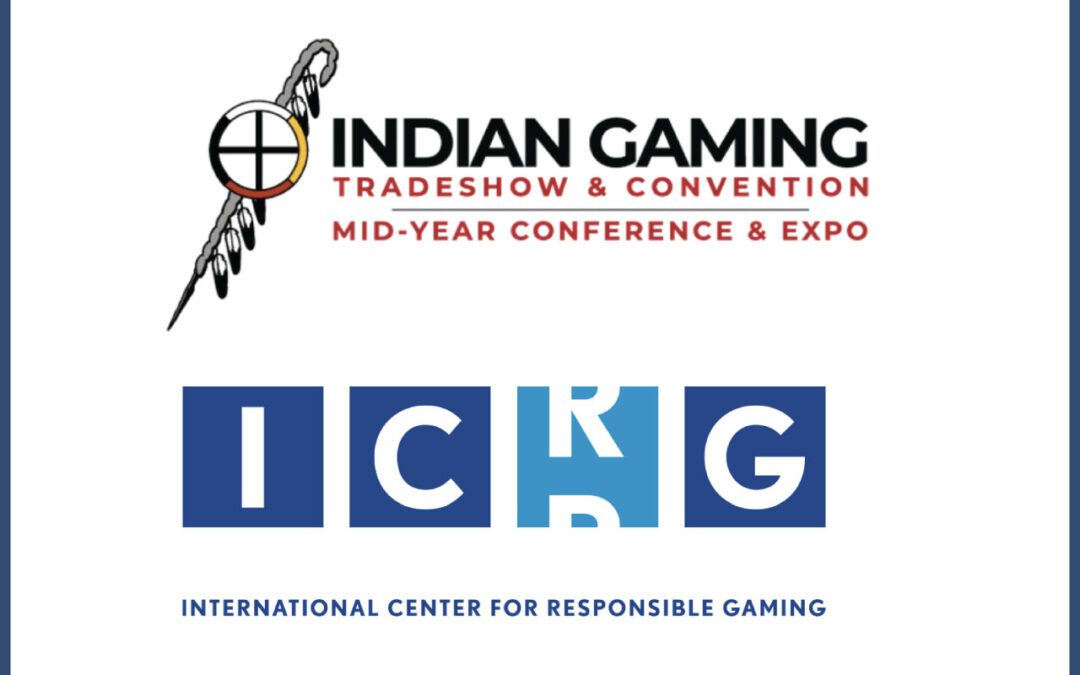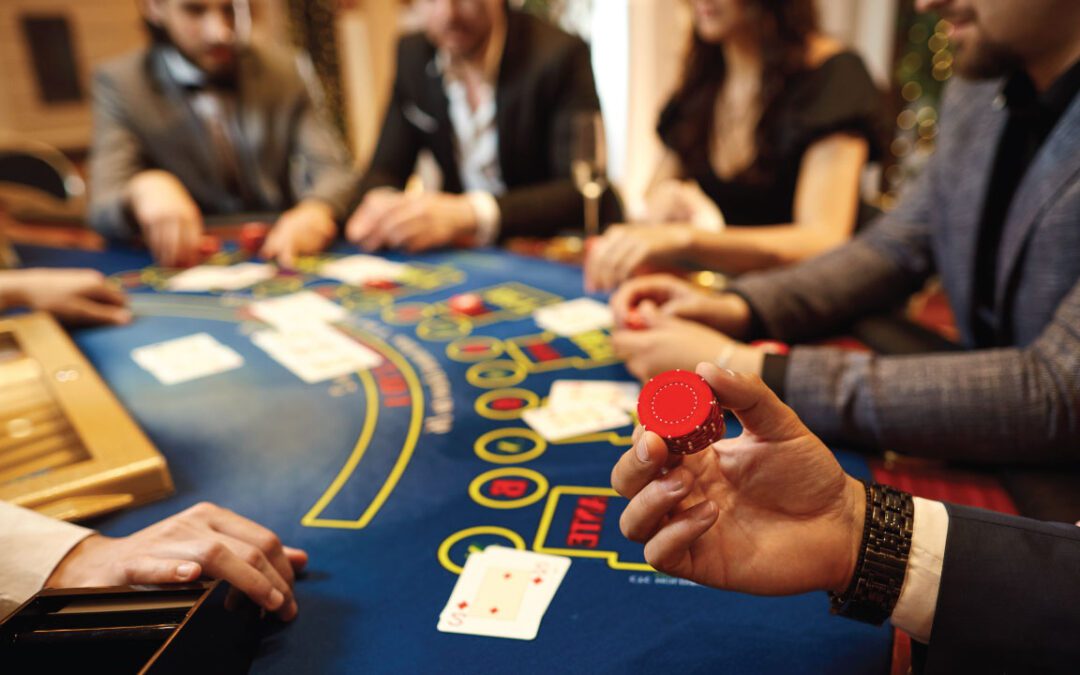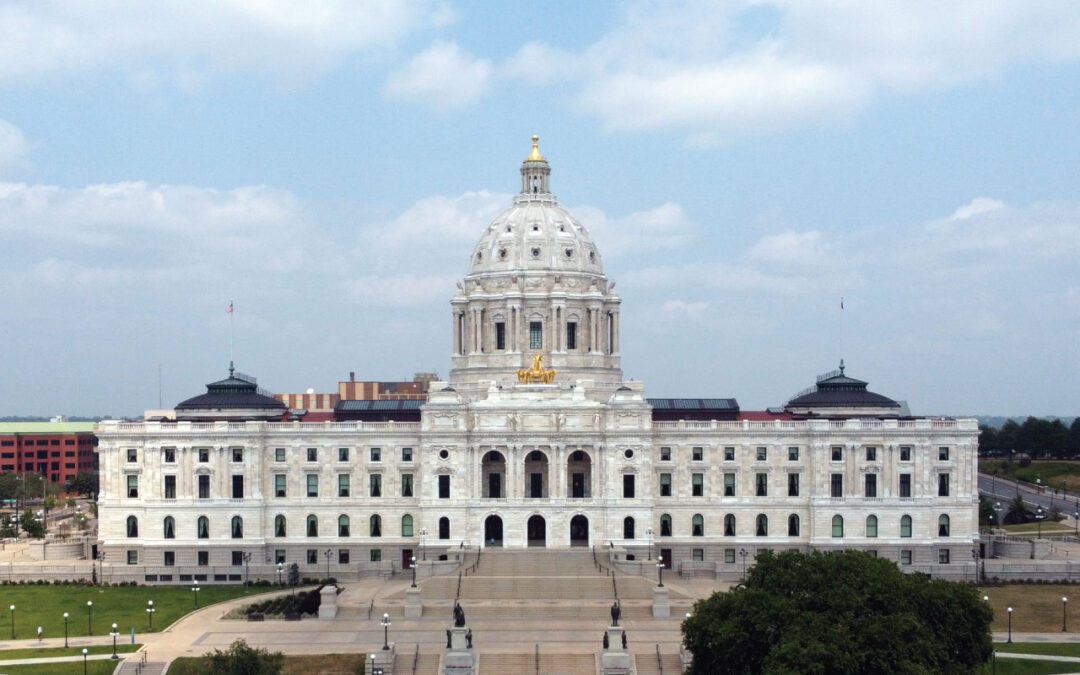
Dec 17, 2025 | ABOUT MNAPG, ADVOCACY, PROFESSIONALS, YOUTH GAMBLING
MNAPG attended two conferences in October: the mid-year Indian Gaming Association (IGA) conference and the International Center for Responsible Gaming (ICRG) conference. Here are some takeaways.
Indian Gaming Association Conference
At the IGA, the focus was on the growing concern about prediction markets and casino sweepstakes—and the impact these unregulated, untaxed platforms could have on tribal revenues. Legalized gambling, whether you agree with it or not, has allowed Minnesota tribal nations to expand and diversify their economies and provide a wide range of services to their communities. These market disrupters are viewed as existential threats to tribal sustainability and independence. (Editor’s note: As of November 5, 2025, the Minnesota Attorney General’s office sent cease-and-desist letters to 14 illegal gambling operators—sports betting and casino sweepstakes.)
The American Gaming Association also recognizes the threats these new platforms pose—not only to gambling revenue but also to consumer protection. Our current federal anti-regulatory environment could significantly change how people engage with gambling. By redefining gambling as a commodity and placing it under the Commodity Futures Trading Commission (CFTC), these platforms may create a stronger illusion of control—skill rather than luck. This illusion is a common fallacy among gamblers, especially sports bettors. Mislabeling gambling products as “trading” blurs the line between investing and gambling, putting consumers at risk. The way these platforms target young adults is particularly troubling. They are designed for continuous, habit-forming engagement, with no guardrails or risk warnings.
The discussions were sobering and, for MNAPG, highlighted yet another area where we need to pay close attention and raise awareness within the community and among policymakers.
International Center for Responsible Gaming Conference
The ICRG conference, a day and a half of research reveals, provided an opportunity to hear firsthand the latest findings in responsible gambling, explore emerging tools and regulatory practices, and discuss the growing integration of responsible gambling principles into the broader gambling landscape. While much work remains, I’m encouraged by the shift among some operators to place greater emphasis on consumer protection. Our advocacy efforts at the national and state levels are having a positive impact, and we need to continue being the thorn in operators’ sides.
One session examined the connection between gambling literacy and financial literacy and the need to evolve both so that users understand how risky behaviors can develop through new mediums like digital finance, investment platforms and social media.
Another session focused on artificial intelligence and emphasized that AI should amplify human insight, not replace it. Advances in AI may eventually enhance early risk detection and enable personalized responsible gambling interventions—but only if we eliminate bias and uphold the highest standards of privacy protection.
Finally, researchers studying youth emphasized the need to create relatable prevention materials and deliver them in the spaces where young people actually spend their time, rather than where we think they should be. They also highlighted the importance of developing prevention programs that account for gender, age and cultural identity.

Sep 5, 2025 | ADVOCACY, YOUTH GAMBLING
The increasing concern over youth gambling was explored in May in a KARE11 story. The segment featured Susan Sheridan Tucker, MNAPG executive director, and Serena King Ph.D., professor of Psychology at Hamline University, with whom MNAGP has partnered on several projects.
The news story cited “Frequent and Problem Gambling in Public School Students,” a letter (study) which examines data from the 2022 Minnesota Student Survey, a large-scale, statewide study of middle and high school students that takes place every three years.
A key finding of the research was that Minnesota students, like Minnesotans at large, are finding ways to gamble, even as sports gambling officially remains illegal in the state. The letter noted that nearly 8% of 8th, 9th and 11th grade Minnesota public school students reported gambling once a week or more. Given that the underlying data is three years old—and with gambling appearing to experience a steady rise—it’s logical to conclude that youth gambling participation may be even higher now.
Dr. King’s research found that 88.6% of those considered “frequent gamblers” (students gambling once or more per week) and 89.2% of those considered “problem gamblers” (gambling in the past year and scoring a 4 or more on the Brief Adolescent Gambling Screen) gambled on informal sports and games. This category included betting on informal games of personal skill, such as playing cards, video games, pool, golf, etc. Frequent gamblers were considerably less likely to gamble on formal sports/games (official sporting events, including esports), lottery and scratch-offs, online (including loot boxes) and at casinos.
“I think what it tells us is it’s culturally embedded in our community,” says Dr. King, who has studied youth gambling and problem gambling for 20 years. She says the data clearly shows that mental health and health care providers should be screening kids who report that they are gambling or if families mention that their child is betting in any way.
“If a child is wagering or engaging in micro transactions inside video games or on Youtube, those platforms could lead a child to gamble,” says Dr. King. “These are areas where physicians and mental health providers might be wise to have a conversation and use a screening tool.”
It’s important to teach children and families that sports betting is pervasive and could lead a child to engage in problem gambling behavior, as kids likely do not have the capacity to understand risks they’re taking.
In the KARE11 story, Susan emphasized that many people treated for gambling addiction were first exposed to gambling as young kids, highlighting the need to monitor youth gambling and provide appropriate education and prevention messaging.
MNAPG will be contracting with Dr. King for an updated study later this year that will compare 2022 data to 2025 data.

Jun 17, 2025 | ABOUT MNAPG, ADVOCACY
Given their close interaction with patrons, casino employees are in a unique position to spot those exhibiting signs of problem gambling. It follows logically that the better educated casino staff are in identifying those showing signs of harm from gambling, the more assistance they can offer.
Recognizing the importance of having staff trained to spot potentially problematic gambling behavior, the Minnesota Alliance on Problem Gambling (MNAPG) has partnered with SG Global to develop an employee training program. The training is expected to be implemented for casino employees at Canterbury Park and Running Aces initially, with the hope that additional casinos will participate in the future.
The training consists of three 20-minute modules designed to help casino staff identify and respond to signs of gambling-related harm. The program provides a practical framework for recognizing how gambling behaviors can escalate over time.
Drawing from lived experience, the training encourages earlier recognition and response rather than waiting for more extreme behavior to surface. “We show how an individual’s relationship with gambling can change over time, exploring the role of gambling, the emotions attached to their gambling and their current decision making,” says Ben Davies, managing director at SG Global. “Showing how harm can build over time and how an individual’s relationship with gambling can change helps staff better understand when and how to intervene, with an aim to preventing harm.”
The effort represents SG Global’s first training project in the United States. As a result, SG Global and MNAPG have worked closely to adapt the material for an American audience, modifying both the language and the examples to reflect cultural differences.
In the UK, where SG Global originated, conversations about gambling habits are more normalized. “It’s not uncommon in the UK for a cashier to ask a patron, ‘I noticed you’ve gambled more than you usually do, are you sure you want to place this bet?’” says Ben. In the U.S., such direct interactions are less comfortable, and the training aims to help bridge that gap in a respectful and effective way.
Once the training is rolled out, SG Global plans to re-evaluate progress after 3–6 months, making adjustments as needed. Additional modules focused on specific themes may be developed, and there is also interest in extending the program to tribal casinos with customized content, lived experience and imagery.
“We are keen to work with as many people as possible to help increase awareness of gambling harm so that gambling operators can support their customers to play safe in a sustainable and enjoyable manner.” says Ben. “This training is a step toward creating more awareness and promoting more open conversations with those at risk of gambling harm.”

Mar 4, 2025 | ADVOCACY, PROBLEM GAMBLING, RESEARCH
Last fall, a lengthy report on the state of gambling was published in The Lancet Public Health, a British monthly journal that focuses on public health. The report (The Lancet Public Health Commission on gambling Wardle, Heather et al. The Lancet Public Health, Volume 9, Issue 11, e950 – e994) provides a comprehensive view of the development of gambling in the last two centuries.
The Lancet Public Health Commission’s report on gambling highlights the escalating global public health crisis posed by the gambling industry, particularly due to its rapid digital expansion. The commission estimates that approximately 450 million individuals worldwide experience harmful effects from gambling, with at least 80 million suffering from gambling disorder—a condition characterized by compulsive gambling behavior despite negative consequences.
The report states that the proliferation of mobile and online gambling platforms has made access easier than ever, contributing to the rise in gambling-related harms. Sophisticated marketing strategies, including targeted digital advertising and sports sponsorships, have increased exposure, especially among adolescents and children. This exposure is concerning, as early interaction with gambling increases the risk of developing gambling disorders later in life.
The commission identifies several severe consequences associated with gambling, including financial losses, mental health issues, family breakdowns, heightened risk of suicide, and increased crime rates. These harms are not evenly distributed; vulnerable groups such as adolescents and individuals from lower socioeconomic backgrounds are disproportionately affected.
To address these challenges, the commission advocates for stronger global regulatory controls, similar to those applied to alcohol and tobacco industries. Recommended measures include restricting access to gambling, limiting advertising and implementing public health campaigns to raise awareness about the risks associated with gambling. The commission emphasizes the need for policymakers to treat gambling as a critical public health issue to mitigate its widespread and profound impact.
In summary, the report calls for comprehensive action to curb the growing public health threat posed by the gambling industry’s expansion, particularly in the digital realm.

Mar 4, 2025 | ADVOCACY, PROBLEM GAMBLING
While about 30 Minnesota Senate and House hearings have focused on sports betting and other forms of gambling over the last few years, none have focused on the negative impacts of sports betting. Until now.
On January 8, the state legislature heard about the socioeconomic impacts of problem gambling and gambling addiction. Several speakers provided expert testimony from a variety of perspectives, including MNAPG executive director Susan Sheridan Tucker.
The hearing included the following speakers and perspectives:
Les Bernal, national director for Stop Predatory Gambling, spoke of concerns with proponents of expanded gambling trying to portray sports gambling companies as regular businesses when, in fact, he sees them as often using predatory practices to attract gamblers and encourage heavy gamblers to keep making bets. “It’s an adversarial relationship,” he said. “That’s true for all forms of commercialized gambling that is being done for profit.”
Matt Litt, a New Jersey-based attorney who specializes in litigation against sports books and gaming companies, spoke of the interactions he’s reviewed between gamblers and VIP hosts. He said that hosts send users trophies and offer all-expenses paid trips to users who spend a certain amount of money, enticing them to keep spending money.
Brett Hollenbeck, associate professor at the UCLA Anderson School of Management, highlighted the financial consequences of legalized sports gambling by presenting an analysis of credit scores, debt consolidation and collections data, bankruptcies and car loan delinquencies. He demonstrated that across nearly every metric, residents of states where sports betting was legal had worse outcomes than those in states that still prohibit sports gambling.
Similarly, Scott Baker, associate professor of Finance at Kellogg School of Management, and his colleagues found that people who bet on sports are more likely to overdraw their accounts, have higher credit card balances and invest less than those who do not gamble on sports.
Emily Arnesen, professor in the Economics department at the University of Oregon, and Kyutaro Matsuzawa, doctoral student in Economics at the University of Oregon, noted that the legalization of sports betting has increased certain types of intimate partner violence. They cited studies that have long documented that domestic violence increases when a local sports team loses. Arnesen and Matsuzawa estimated that sports betting legalization increased incidents of intimate partner violence by around 9%.
Susan Sheridan Tucker explained MNAPG’s neutral stance on gambling but emphasized its desire to advocate on behalf of those impacted by problem gambling, to ensure that appropriate consumer protections are incorporated into any legalization of gambling, and to secure adequate funding is set aside to advance prevention and treatment efforts.
Craig Johnson, a Minnesota certified gambling treatment provider with Club Recovery, spoke of the harms he has witness from his clients with gambling problems. “The effect of this disease on individuals is as profound as any addiction you can encounter,” he said.
In addition to the experts, several individuals with lived experience spoke of their personal struggles with gambling addiction and the impact it has had on their life and the lives of others.
The complete hearing can be viewed at https://www.youtube.com/watch?v=1RBsKS2BRTU.

Nov 12, 2024 | ADVOCACY
The National Council on Problem Gambling (NCPG) recently released the first two public service announcements (PSAs) in its 52-year history. Each PSA features a distinct message for a key audience. One highlights the National Problem Gambling Helpline (1-800-GAMBLER) and the other shares tips about playing responsibly if you gamble. You can view the videos at here.
The National Problem Gambling Helpline PSA features a frustrated gambler who receives numerous texts related to a gambling loss, a large cash withdrawal, his daughter’s recital, a marketing promotion on his next bet and, finally, the suggestion from a friend to contact 1-800-GAMBLER. It concludes with his attending his daughter’s recital, seemingly starting on his way to recovery.
“The goal is to educate people that this number exists,” says Cait Huble, director of communications at NCPG. “Research shows that only 45 percent of people know where to get help for a gambling problem. Like any other crisis, the first priority is for people to know that help is available and how to access it.”
The second PSA shares tips for making sports betting safer with those who choose to gamble. It features a referee dropping into a conversation between two people discussing sports wagers. The referee explains that gambling can be fun, but also risky. The referee outlines several tips for safer gambling, including setting a budget, not chasing losses and teaming up with a friend to maintain accountability. NCPG’s responsible play website (ResponsiblePlay.org) is promoted at the end of the message.
Both PSAs are included in free public awareness toolkits made available to all stakeholders and for use within communities. The toolkits, available on the NCPG website (NCPGambling.org), include a full suite of fact sheets and social media assets for download.
Starting in September, NCPG began running paid ad campaigns for both PSAs. Ads appear on social media, YouTube and various other streaming channels. Cait says NCPG hopes to amplify the messages through operators, community health organizations and state affiliates.
There is no current budget for placing the ads on broadcast television, but there’s hope for that in the future.
“We’re excited to release these PSAs” says Cait. “As we receive feedback and learn how people are responding to the messages, we hope there will be opportunities for additional campaigns.”
Page 1 of 812345...»Last »






